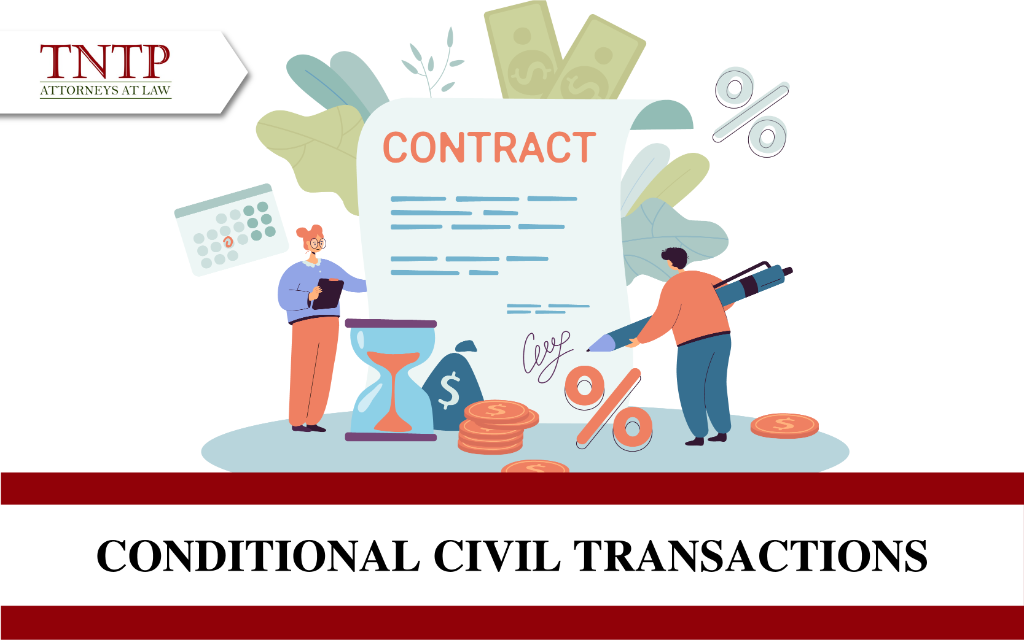Depending on different requirements, many entities choose to perform civil transactions with certain conditions. These conditions are the basis for the parties to perform the transaction. Through this article, we will convey to our readers the legal provisions on conditional civil transactions, so that readers can have a clearer and more general view of this transaction.
1. What are conditional civil transactions?
Conditional civil transactions have three basic characteristics, i) Associated with certain events; ii) Depend on the facts determined by the will of one party or objectively agreed by the parties; iii) Conditional transactions will be established or canceled depending on the establishing or canceling conditions. Conditional civil transactions are classified into conditional contracts and conditional unilateral legal acts.
The conditions clearly show the true will of one party or the parties; at the same time, these conditions are determined based on reality; being objective and not violating the prohibition of the law or contrary to social ethics.
For example, Company C and Company D agree that: D supply samples to C, if D’s goods meet the requirements of quality, specifications, technical standards, and designs (collectively known as “meet the quality requirements”), C will agree to buy those goods from D. Thus, the event “D’s goods meet the quality requirements” is considered as a condition for C to buy D’s goods, if this event does not happen, C will refuse to make the purchase.
2. Solutions when the conditions cannot occur or occur under the influence of one party
2.1 Conditions affected by the willful act of one party
Where a condition for a civil transaction’s establishment or cancellation cannot occur due to a party’s direct or indirect intentional act of obstruction, such condition shall be deemed to have occurred. Where there is a direct or indirect influence of a party to intentionally promote the occurrence of a condition, such condition shall be deemed to have not occurred. That party may create the influence either by herself/ himself or through a third party so that the condition is to happen or not.
Thus, the condition is regarded as being completed and the conditional transaction is valid where a party’s influence is aimed at “promoting” or “obstructing” this condition.
2.2. Conditions have arisen but the obligee refuses to transfer the right
In case the parties have agreed on the conditions for the transaction’s establishment in the contract and this event has already occurred, the contract will take effect. If the obligee refuses to transfer the right to the other, it is considered a breach of the obligation. The obligee must be responsible for civil liability to the other party such as being forced to perform the obligation, being fined, or compensating for damages, etc.
3. Notes for establishing conditional civil transactions
- Identify establishment and cancellation conditions of transactions, avoiding confusion between conditional civil transactions and performance of conditional obligations, conditional civil transactions and cancellation due to non-performance of obligations, etc.
- Determine whether the conditions that each party proposes are contrary to the provisions of law and social ethics.
- Consider the feasibility of the condition and the consequences when the event happens or does not happen.
- When the condition’s legality is guaranteed, the parties need to clearly state it in writing, in addition, it should be notarized/certified to be a grounded basis for dispute settlement (if any).
- Contact individuals/organizations providing legal consultancy on how to establish a transactions, thereby best ensuring your rights and interests.
Above is the article “Conditional civil transactions”. We hope this article is useful to you.
Sincerely,







